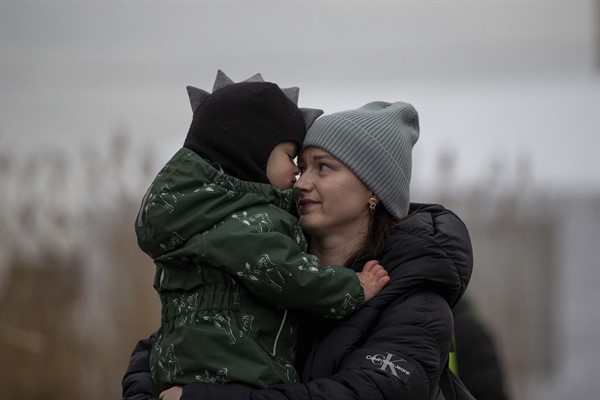In an article titled “Putin’s War in Ukraine Will Not Stay in Ukraine,” published on the morning of Russia’s Feb. 24 invasion, WPR editor-in-chief Judah Grunstein argued that the ramifications of this conflict would ricochet throughout Europe. Some sort of curtain, he wrote, “seems destined to descend” across the continent.
But in addition to this spatial dimension of the fallout from this war, we should also be thinking about the generational aspects of its effects. Time and time again, we have seen that conflict exacerbates intergenerational injustice. When war breaks out, children and young people inherit tensions that they did not cause and are left to deal with the consequences for decades—and girls and young women bear the largest burden.
War disproportionately hurts those under the age of 30 in both the short and long term. As some of the most vulnerable people in any society, and as symbols of the future, “children have become frontline targets in armed conflicts,” according to UNICEF. Just last month, the United Nations Security Council identified and condemned six grave violations to which children in zones of conflict are especially susceptible. The list tragically included abduction, recruitment into armed groups and strikes on schools and hospital.

